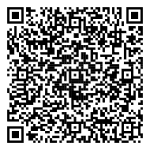AFAP Safety Occurrence guide

The AFAP Safety Occurrence Guide was created for pilots after they find themselves in a safety or performance related event. Pilot find it useful as being in an event is usually the first time and what to expect is not necessarily covered in training.
The purpose of the AFAP Safety Occurrence Guide is to help pilots understand the Safety Process, to call the AFAP sooner for advice and to demonstrate to industry the expectation of a positive safety culture.
The guide emphasizes the importance of immediate action following a safety-related occurrence. Members are encouraged to contact the AFAP as soon as possible after an event, utilizing the 24/7 emergency hotline (+61 459 747 757). Early engagement with the AFAP has been observed to result in more favourable outcomes and expedited returns to line duties.
The process typically involves multiple stakeholders, including the company safety department, flight standards or training department, and regulatory bodies such as the ATSB and CASA. The AFAP provides a structured framework to guide pilots through these steps, ensuring their rights and well-being are prioritized.
Key Steps After a Safety Event
1. Initial Actions:
o Protect people and get to safety.
o Contact the AFAP for guidance.
o Comply with Drug and Alcohol Management Plan (DAMP) and reporting obligations.
o Seek medical attention for physical and psychological health.
2. Engaging with the Process:
o Complete a factual summary of the event.
o Submit required reports (e.g., ATSB Immediately Reportable Matter or Routinely Reportable Matter).
o Prepare for potential safety meetings with the support of the AFAP.
3. Navigating Safety Meetings:
o Understand the typical structure and purpose of meetings with stakeholders.
o Anticipate stress triggers, such as viewing flight data animations or responding to direct questioning.
o Focus on learnings and positive outcomes rather than self-blame.
Human Responses to Safety Events
The course highlights the normalcy of stress responses following a safety event. Pilots may experience behaviours such as catastrophizing, self-blame, replaying the event, or heightened anxiety. Understanding these responses and seeking support early can stabilize the stress reaction and build resilience.
Engaging the parasympathetic nervous system and maintaining connection with a trusted AFAP team member are crucial steps in returning to a balanced state. Pilots are encouraged to recognize survival state behaviours and work proactively to manage them.
Safety Culture and Resilience
The course promotes a Safety II approach, focusing on trust, training, and verification. This perspective views humans as assets in the safety system, capable of learning and adapting from experiences. Pilots are reminded that a safety event does not define their career but adds to their skill set and professional growth.
Resilience is a key component of the AFAP's support framework. The guide incorporates:
- Competency-Based Training (CBT): The importance of CBT language around competencies and behaviours when discussing an event.
- AFAP Support: One-on-one guidance to navigate the safety process and rebuild confidence.
- Member Assistance Program (MAP): Free, confidential counselling available 24/7 to address personal or work-related issues.
Preparation and Support for Safety Interviews
The AFAP Safety Occurrence guide provides practical tools to help pilots prepare for safety interviews. These include understanding the interview process, framing responses appropriately, and managing stress effectively. Support levels are tailored to individual needs, ranging from basic advice to full representation during meetings.
Key takeaways include:
- Importance of language and framing during interviews.
- Value of early and continuous engagement with AFAP support.
- Strategies for self-regulation and confidence building.
To see the full copy of the AFAP Safety Occurrence Guide please scan this QR code.
